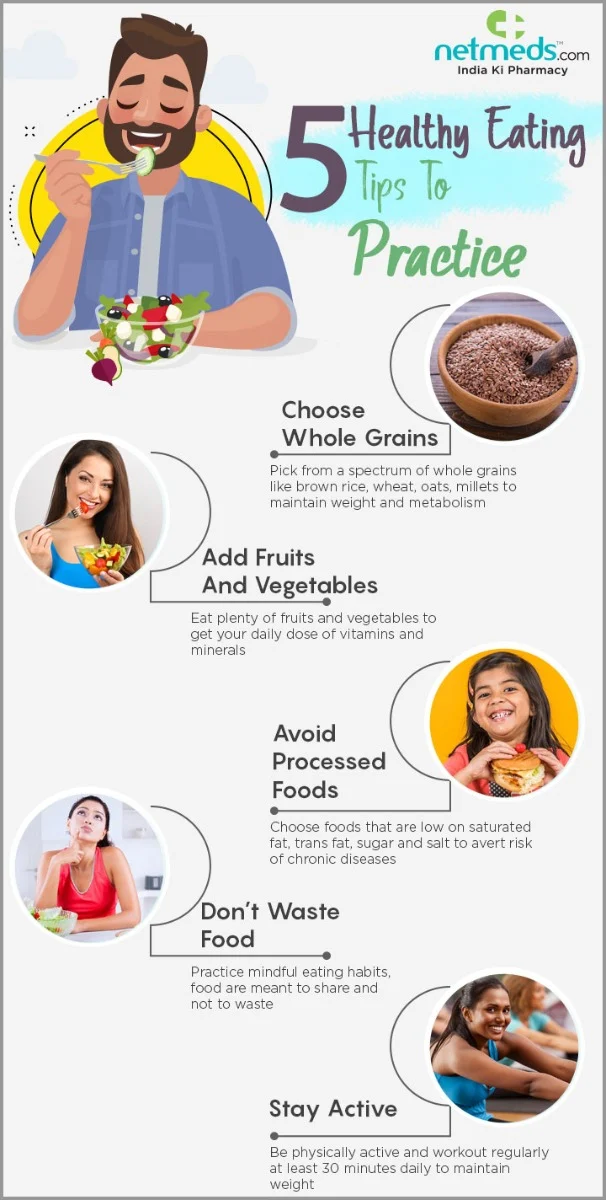Healthy eating is an essential part of maintaining overall well-being. Practical suggestions for healthy eating include incorporating a variety of fruits and vegetables into your diet, choosing whole grains over refined grains, and opting for lean protein sources such as poultry, fish, and legumes. It is also important to limit the intake of processed foods, sugary drinks, and excessive amounts of salt. By focusing on these practical suggestions, individuals can improve their nutritional intake and support their long-term health.
When it comes to practical suggestions for healthy eating, it’s important to prioritize portion control and mindful eating. This means paying attention to hunger and fullness cues, and being aware of emotional eating triggers. Additionally, meal planning and preparation can help individuals make healthier choices and avoid relying on convenience foods. Another practical suggestion is to stay hydrated by drinking plenty of water throughout the day. Making small, sustainable changes to your eating habits can lead to long-term improvements in overall health and well-being.
Understanding the Basics of Healthy Eating
Healthy eating is about consuming a variety of foods that give you the nutrients you need to maintain your health, feel good, and have energy. These nutrients include protein, carbohydrates, fat, water, vitamins, and minerals. Nutrition is important for everyone. When combined with being physically active and maintaining a healthy weight, eating well is an excellent way to help your body stay strong and healthy.
Healthy eating is not about strict dietary limitations, staying unrealistically thin, or depriving yourself of the foods you love. Rather, it’s about feeling great, having more energy, improving your health, and boosting your mood.
Creating a Balanced Plate
Aim to fill half your plate with fruits and vegetables. Divide the other half between lean protein and whole grains. This balance can help you maintain a healthy weight and also ensures that you are getting a variety of nutrients. Try to choose a variety of different colored fruits and vegetables as each color contains different nutrients that are beneficial for your health.
It’s also important to be mindful of portion sizes. Eating too much of any food, even healthy ones, can lead to weight gain. Pay attention to recommended serving sizes and try to avoid eating directly from the package, as this can lead to overeating.
Planning and Preparing Healthy Meals
Planning and preparing your meals ahead of time can help you make healthier choices. When you have a meal plan and stick to it, you are less likely to grab fast food or order takeout. Try to include a variety of foods in your meals to ensure you are getting all the nutrients your body needs.
Experiment with different cooking methods such as baking, grilling, steaming, or sautéing instead of frying. This can help reduce the amount of added fat in your meals. Additionally, try to limit your intake of processed and packaged foods, as they tend to be high in unhealthy fats, sugar, and salt.
Snacking Smartly
Healthy snacking can help you avoid overeating during meals and keep your energy levels up throughout the day. Opt for nutrient-dense snacks such as fruits, vegetables, nuts, or yogurt. These snacks provide important vitamins and minerals that your body needs, without the added sugars and unhealthy fats found in many processed snacks.
It’s also important to pay attention to portion sizes when snacking. Even healthy snacks can contribute to weight gain if eaten in large quantities. Try pre-portioning your snacks into small containers or bags to avoid mindless overeating.
Staying Hydrated
Drinking an adequate amount of water is essential for overall good health. Water helps regulate body temperature, aids in digestion, and transports nutrients and waste throughout the body. It’s important to drink water throughout the day, and not just when you feel thirsty. Additionally, try to limit your intake of sugary drinks such as soda and fruit juices, as they can add unnecessary calories and sugar to your diet.
If you struggle to drink enough water, try infusing it with fruits or herbs for added flavor, or carry a water bottle with you throughout the day as a reminder to stay hydrated.
Making Healthy Choices When Eating Out
Eating out at restaurants or grabbing takeout can make it challenging to stick to a healthy eating plan. However, there are ways to make healthier choices when dining out. Look for menu options that include plenty of vegetables, lean proteins, and whole grains. Additionally, consider sharing a larger entrée with a friend or packing half of your meal to go to avoid overeating.
It’s also a good idea to be mindful of portion sizes when eating out, as restaurant servings are often larger than what you need. Consider ordering an appetizer or half-sized portion, or ask for a to-go box at the beginning of the meal to portion out half of your plate before you start eating.
Understanding and Managing Food Labels
Reading and understanding food labels can help you make informed choices about the foods you buy. Pay attention to serving sizes, calories, and the amount of nutrients and ingredients listed on the label. Look for foods that are low in added sugars, saturated fats, and sodium, and high in fiber, vitamins, and minerals.
Additionally, try to choose whole, unprocessed foods whenever possible. These foods tend to be lower in unhealthy additives and provide more nutrients than processed and packaged foods. If you’re unsure about a certain ingredient listed on a food label, do some research to understand its potential impact on your health.
Seeking Support and Accountability
Making changes to your eating habits can be challenging, and it’s okay to ask for support. Consider enlisting the help of a friend, family member, or coworker to join you in making healthier choices. Having someone to share your successes and challenges with can make the process feel less daunting.
You may also want to consider consulting with a registered dietitian or nutritionist for personalized guidance. These professionals can help you create a meal plan that meets your specific nutritional needs and offer tips for overcoming any obstacles you may encounter on your journey to healthier eating.
| Meal | Suggestion |
|---|---|
| Breakfast | Eat a balanced meal with whole grains, protein, and fruits or vegetables. |
| Lunch | Include lean protein, healthy fats, and plenty of fiber from vegetables and whole grains. |
| Dinner | Focus on vegetables, lean protein, and whole grains. Limit added sugars and high-fat ingredients. |
| Snacks | Choose nutrient-dense options like nuts, fruits, or yogurt to keep you satisfied between meals. |
| Hydration | Drink plenty of water throughout the day and limit sugary drinks. |
| Portion Control | Be mindful of portion sizes and avoid oversized servings. |
| Mindful Eating | Pay attention to hunger and fullness cues, and savor each bite by eating slowly. |



